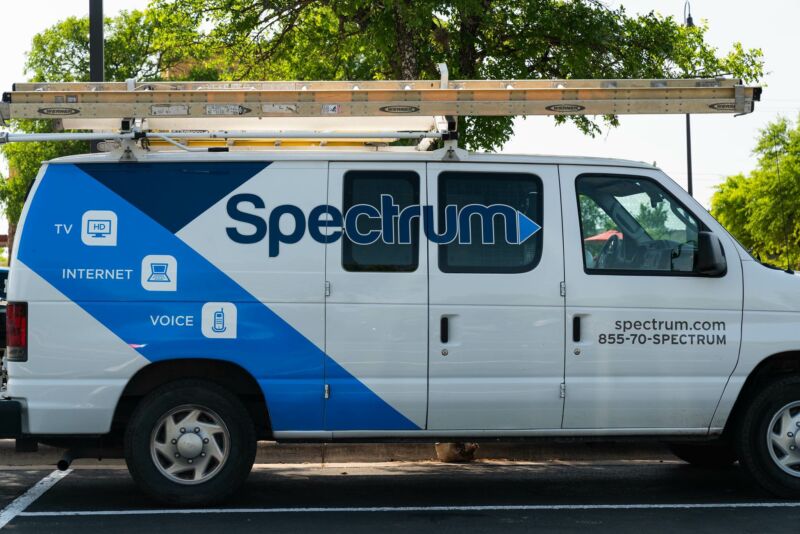
The Federal Communications Commission is helping Charter avoid broadband competition in New York State with a decision that will block government funding for other ISPs in locations where Charter is required to build.
The FCC plans to award ISPs up to $16 billion over 10 years from the Rural Digital Opportunity Fund (RDOF) in a reverse auction scheduled to begin in October. The FCC said in an announcement yesterday that it “granted Charter Communications’ waiver request to exclude 2,127 census blocks in New York from the eligible areas list because the company will deploy broadband in those locations pursuant to a settlement reached with the State of New York.”
Separately, the FCC denied a Frontier Communications request to exclude nearly 17,000 census blocks in parts of 29 states from the auction.
RDOF rules block funding in census blocks that already have home-Internet access at speeds of at least 25Mbps downstream and 3Mbps upstream. RDOF rules also block funding in census blocks where at least one ISP has been awarded money from any federal or state broadband-subsidy program “to provide 25/3Mbps or better service.” But as we previously reported, that rule would not prevent ISPs from getting funding to serve parts of New York where Charter is required by a merger condition to offer service but in which it hasn’t yet finished construction. Charter petitioned the FCC for a waiver to ban RDOF funding in those census blocks “in which Charter has unfunded but nonetheless binding state obligations to deploy at least 25/3Mbps broadband service.”
Charter’s New York project is required by conditions the state government imposed on its purchase of Time Warner Cable. Charter failed to meet interim deadlines in that project but got an extra year to comply in a settlement in which it agreed to pay $12 million toward other new broadband deployments. Under the new, postponed deadline, Charter is required to finish deploying service to 145,000 homes and businesses in Upstate New York by September 30, 2021. Charter offers service under the Spectrum brand name.
The FCC said excluding the New York census blocks from this year’s auction “will further the Commission’s goal that Rural Digital Opportunity Fund support flow to areas that are in the most need of universal service support to advance broadband deployment—those that remain wholly unserved with broadband speeds of 25/3Mbps.”
The FCC originally shut all of New York out of the auction, but it reversed that decision after protest. Under yesterday’s decision, 47,024 homes and businesses in New York are eligible for funding from this year’s auction.
There are about 11 million census blocks in the US, but several million are unoccupied. The size of each census block varies from “a block in a city bounded on all sides by streets” to “hundreds of square miles” in remote areas, the Census Bureau says.
FCC denies Frontier
In another portion of the same order, the FCC yesterday said it will allow funding in 16,987 census blocks where Frontier claimed it offers 25/3Mbps service. Frontier, which filed for bankruptcy in April 2020, drew skepticism when it claimed to the FCC that it had deployed 25/3Mbps broadband to those 16,987 census blocks since June 2019. Frontier later “explained that its list of 16,987 census blocks does not reflect new builds since June 2019, but rather more accurate reporting on the fastest speeds that are available in certain blocks,” the FCC said.
The FCC agreed there is reason for skepticism. “Given the numerous and significant concerns in the record regarding the validity of Frontier’s filing, including its own admission that it had misfiled its June 2019 data, errors in its challenge that it sought to revise, and inconsistent explanations for its challenge, the commission denied Frontier’s challenge,” the FCC said.
Frontier urged the FCC to exclude the 16,987 census blocks in a filing on April 10. But Frontier gave up on that request a month and a half later, telling the FCC on May 23 that it “would welcome the inclusion into the RDOF auction the challenged census blocks where Frontier provides service at speeds of 25/3Mbps and greater.” These census blocks are in 29 states; since the original filing, Frontier completed a sale of its operations in four of those states.
Nationwide, the FCC said it determined that 5,392,530 homes and businesses count as “unserved locations” where this year’s $16 billion auction can distribute funding. The RDOF’s overall budget is $20.4 billion over 10 years. The remaining $4.4 billion will be distributed after the FCC collects more accurate broadband-mapping data.
Disclosure: The Advance/Newhouse Partnership, which owns 13 percent of Charter, is part of Advance Publications. Advance Publications owns Condé Nast, which owns Ars Technica.
https://arstechnica.com/?p=1687664

